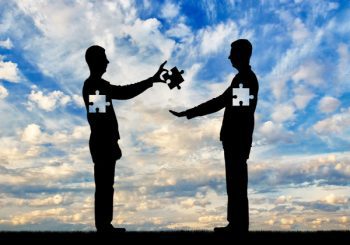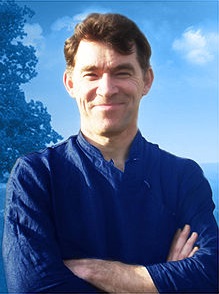Guest writer for Wake Up World
Do you see yourself as an altruistic person? Here’s a test to find out. Assuming you’re a healthy person, you have two kidneys but only need one. In your country, there are thousands of chronically ill patients who may die if they don’t receive a new kidney. So are you willing—now, while you are still alive—to give away your one unneeded kidney to save them?
Understandably, you might be reluctant to agree to this. After all, it’s not a simple question of giving away one of our kidneys. You would have to undergo major surgery with potential risks. And what if your one remaining kidney stopped functioning at some point?
But a surprisingly large number of people are willing to donate their kidneys. The majority of kidney transplants are from deceased individuals, but in the UK, over one third are from living donors. As you might expect, most of these donors are relatives of the patients. But 11% of them are ‘non-specified’ donors who have no connection to any patients. They usually don’t find out who their kidney has gone to, or even whether the transplant operation has been successful. They have simply decided to make a sacrifice to help relieve the suffering of their fellow human beings.
Crisis and Altruism
What would motivate this amazing act of altruism? A few weeks ago, I was asked to speak about altruism at a conference on ‘Living Kidney Donation’ in Manchester to celebrate the 50th anniversary of transplants in the city. At the conference I learned that some ‘unspecified’ donors are people who have had recent crises in their lives. Sometimes they are soldiers who have returned from conflict zones, where their lives were in danger. Sometimes they are people who have recovered from serious illness. Sometimes they have suffered a bereavement. Understandably, doctors are cautious about accepting donations from individuals who have recently been through life-changing events in case they are suffering from psychological problems. So potential donors are rigorously screened to make sure that they are psychologically stable.
Most acts of altruism are reactive—that is, we do them when we witness other people’s suffering or misfortune first hand, or through the media. We see an injured bird and take it to the nearest vet. We see TV images of suffering after an earthquake or a famine and donate money to disaster relief charities. It’s less common for people to be altruistic in a more proactive way, on a point of principle. It seems to speak of a more deep-rooted and unconditional compassion, resulting in what you could call ‘unconditional altruism.’
To me, all of this makes sense. Over the past 10 years or so, one of my main areas of research in psychology has been transformational experiences that occur after intense psychological turmoil. This can mean a transformation after a diagnosis of cancer, becoming disabled, bereavement, recovery from addiction, an intense period of depression or stress, and so on. I have found many examples of people who have undergone a kind of spiritual awakening after these experiences. Typically, they become more appreciative of life, more intensely aware of the world around them, less materialistic, and more interested in spirituality. They spend more time living in the present (rather than being focused on the future and the past), enjoy solitude and inactivity, and feel a powerful sense of contentment.
Another very significant change is that they become much more altruistic than before. They feel a stronger sense of connection to other people, with more empathy and compassion. And as a result, they feel a strong impulse to try to alleviate other people’s suffering, or to help them develop in a positive way. In other words, they are more liable to engage in reactive altruism. At the same time, they feel a strong general impulse to do what is right to uphold universal moral principles, resulting unconditional altruism. So to me it doesn’t seem surprising that people who have been through major crises in their lives should be willing to give up one of their kidneys to potentially save the life of a person to whom they have no direct connection.
Human Beings’ Amazing Capacity for Altruism
Living kidney donors are an amazing example of human beings’ capacity for altruism. Evolutionary biologists have suggested that we act most altruistically to the people closest to us because we share most of our genes with them. So by helping them we are really just helping our own genes to survive. And when we act altruistically to people who aren’t closely related to us, this can be explained as a disguised form of selfishness—perhaps a desire to feel good about yourself and look good in other people’s eyes, or even to improve your chances of getting to heaven. Or it could be part of a strategy to do favors so that they will be returned in our own times of need.
However, I don’t think that these theories can account for the amazing range and depth of human altruism. As I argue in my new book, Spiritual Science, altruism is innate to human beings, because at the most fundamental level, we share the same essence. We are interconnected and have the ability to feel each other’s suffering. And when we empathize with each other in this way, it often triggers an impulse to alleviate suffering through altruistic deeds. Our interconnection creates empathy, and empathy leads to altruism. Following transformational experiences triggered by intense turmoil, we become able to feel our interconnection—and hence empathy—much more strongly. As the philosopher Schopenhauer expressed it, “My own true inner being actually exists in every living creature, as truly and immediately known as my own consciousness in myself… This is the ground of compassion upon which all true, that is to say unselfish, virtue rests, and whose expression is in every good deed.”
Recommended articles by Steve Taylor, Ph.D:
- Hypnotic Healing: What is Responsible for the Placebo Effect and Hypnosis?
- Beyond Religion: Will Human Beings Ever Transcend the Need for Religions?
- The Transformational Effects of Bereavement
- Post-Traumatic Creativity: How Psychological Turmoil Can Unlock Our Creative Potential
- The Meaning of Life May Be Life Itself
- Spiritual Depression
- Do Psi Phenomena Exist? A Debate (Part One)
- Do Psi Phenomena Exist? The Debate Continues
- David Ditchfield’s Remarkable Near Death Experience
About the author:
Steve Taylor is a senior lecturer in Psychology at Leeds Beckett University, UK. His latest books in the US are The Calm Center and Back to Sanity: Healing the Madness of the Human Mind. He is also the author of The Fall, Waking From Sleep, and Out Of The Darkness. His books have been published in 19 languages. His research has appeared in The Journal of Transpersonal Psychology, The Journal of Consciousness Studies, The Transpersonal Psychology Review, The International Journal of Transpersonal Studies, as well as the popular media in the UK, including on BBC World TV, The Guardian, and The Independent.
Connect with Steve at StevenMTaylor.com.

If you've ever found value in our articles, we'd greatly appreciate your support by purchasing Mindful Meditation Techniques for Kids - A Practical Guide for Adults to Empower Kids with the Gift of Inner Peace and Resilience for Life.
In the spirit of mindfulness, we encourage you to choose the paperback version. Delve into its pages away from screen glare and notifications, allowing yourself to fully immerse in the transformative practices within. The physical book enriches the learning process and serves as a tangible commitment to mindfulness, easily shared among family and friends.
Over the past few years, Wake Up World has faced significant online censorship, impacting our financial ability to stay online. Instead of soliciting donations, we're exploring win-win solutions with our readers to remain financially viable. Moving into book publishing, we hope to secure ongoing funds to continue our mission. With over 8,500 articles published in the past 13 years, we are committed to keeping our content free and accessible to everyone, without resorting to a paywall.








